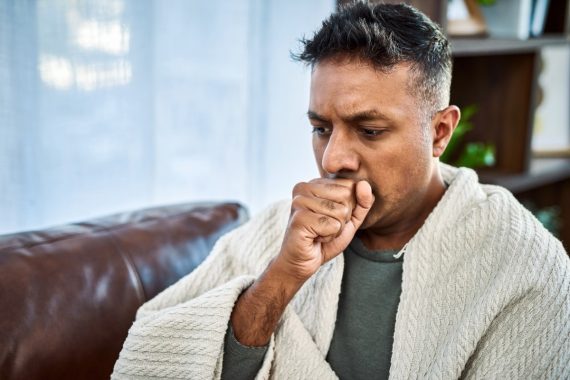No national funding will be directed towards respiratory hubs this winter, despite GPs around the country saying these have significantly helped to reduce pressures.
ICBs have been asked to ‘consider the evaluation’ of ARI hubs from last winter, and weigh up whether to fund them themselves going forward, since no national funding has been confirmed, according to NHS England.
Acute respiratory infection (ARI) hubs – 363 across the country – were put in place last year with national funding to relieve pressure on other parts of the system.
The hubs were recommended by NICE due to rise of ARIs since the Covid pandemic, including 220,000 people being diagnosed with pneumonia in England and Wales every year, causing significant winter pressures.
An NHS England spokesperson told a recent general practice webinar: ‘There is no national funding confirmed currently. ICBs are being asked to consider the evaluation of ARI hubs from last winter and consider funding them going forward.
‘We continue to make the case for the hubs as they have been shown to reduce impact on primary care and A&E and provides timely access to same day access. The impact can be found on the NHS Futures website.’
In a different webinar last month, NHS England said the hubs had resulted in ‘value for money’ because patients were seen ‘in the right place at the right time’.
In feedback received by the commissioner, 83% agreed that ARI hubs ‘reduced pressures on primary care’ and that without the hubs, about 360,000 patients would have gone to their GP instead.
GP spokesperson for the Doctors’ Association Dr Steve Taylor told Pulse that the lack of funding shows that GPs are ‘left to pick up the pieces’ as winter pressures in general practice ‘are ignored’.
He said: ‘Acute respiratory infection activity is on the rise. ARI hubs helped the NHS cope last winter to increase access to same day appointments, supporting A&E and primary care.
‘This winter there is no funding, so these are unlikely to be available in the same way. ICBs are being asked to find money from nowhere.
‘Again, this shows that primary care in general and GPs in particular are left to pick up the pieces, and winter pressures are ignored by this Government failure to support the NHS.’
Dr Dean Eggitt, chief executive officer of Doncaster LMC, agreed that most ICBs are unlikely to have the resources to fund the hubs this winter.
He told Pulse: ‘Most ICBs are in huge deficits and probably do not have the resources to fund ARI hubs even though they are very effective.
‘We are lucky in Doncaster in that we have a permanent minor illness centre that acts like a year round ARI. It’s worth its weight in gold, but it’s not free.’
Professor Azeem Majeed, head of the Department of Primary Care and Public Health at Imperial College London, said that without the hubs other local NHS providers, including GPs, will be expected to deal with patients with acute respiratory infections this winter.
He said: ‘Commissioning of services for Covid-19 is now being devolved to ICBs. Hence, it’s up to each ICB to decide if they fund ARI hubs.
‘I suspect most ICBs won’t want to fund separate ARI hubs and will expect other local NHS providers to deal with patients with acute respiratory infections this winter such as general practices, walk-in centres, urgent care centres and emergency departments.’
In one area, GPs have taken matters into their own hands in the absence of an ARI hub – Shrewsbury PCN has set up a ‘winter illness centre’ which offers extra appointments to deal with respiratory symptoms such as a cough, sore throat, and earache. The aim is to take pressure of local GP practices.
The PCN’s clinical director Dr Charlotte Hart told Pulse the centre was set up because there is no local ARI, and was funded by a combination of capacity and access payment (CAP) and ARRS.
‘We hope that at the end of the winter we will be able to demonstrate care that is delivered promptly, of a high standard and that this produces savings to our system,’ Dr Hart said.
If the PCN can show that the centre improves access this year, the PCN plans to agree a commissioned service with the ICB for future years.
It comes after NHS England instructed ICBs to prioritise ‘financial balance’, with the GP recovery plan among a host of targets being deprioritised for now.


















Government de funding of general practice has put pressure on general practice.